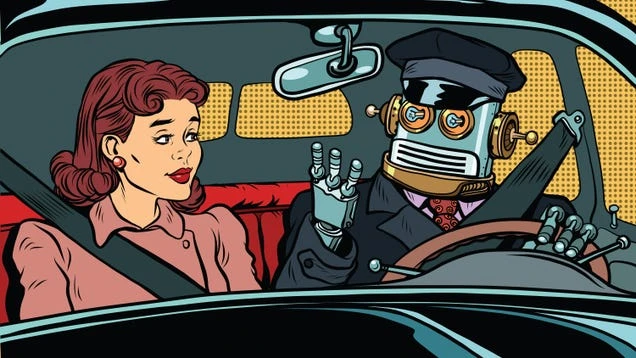Buckle Up: Driverless Cars Can’t Get Traffic Tickets In California
Last year, California granted permission for autonomous vehicle companies cruise and Waymo to operate driverless robotaxis on the streets of San Francisco. Unfortunately, the initial trial period brought to light some significant issues.
Unanticipated Challenges on the Streets
The driverless Cars, despite their futuristic appeal, proved to be unprepared for the complexities of real-world roadways. Reports surfaced showcasing the chaotic behaviors exhibited by the autonomous taxis.
The taxis caused traffic congestion, maneuvered unpredictably, and tragically, were involved in a pedestrian accident resulting in life-threatening injuries.
An Unfair Advantage: Immunity for Driverless Cars
In the midst of this turmoil, it was discovered that these robotic drivers benefitted from a unique form of immunity – they could not receive traffic tickets, irrespective of their driving performance.
While human drivers are expected to adhere to traffic regulations, the same does not apply to autonomous vehicles. In accordance with state law, the San Francisco Police Department’s official policy states that driverless Cars are exempt from traffic citations for driving errors.
Legal Loopholes and Legislative Responsibilities
Interestingly, California did not revise its laws before authorizing the operation of these driverless vehicles. As a consequence, while these Cars have received parking tickets, they remain immune to moving violation tickets.
Under California laws, traffic violations can only be issued to the person operating the vehicle, which poses constraints when dealing with algorithm-operated Vehicles.
It was also evident that the state’s laws needed an update to accommodate the evolving autonomous vehicle technology. In response, the california department of motor vehicles indicated that the responsibility to update the laws lies in the hands of the state legislature.
Public Safety and Regulatory Enhancements
Amidst these developments, public safety came under scrutiny. In the face of evolving technology, the Department of Motor Vehicles emphasized the need to enhance the regulatory structure to align with the advancements in autonomous vehicle technology.
Furthermore, the DMV encouraged collaboration from all parties involved to contribute to the refinement of regulations governing the safe operations of autonomous Vehicles in California.
Oversight in Other States and Legislative Actions
While several states allowed autonomous vehicle companies to conduct experiments without updating their laws, Texas and Arizona took proactive steps to protect public safety.
In these states, legislation was amended to hold owners of driverless Cars accountable for traffic violations, even in the absence of a human driver. This foresight reflects a commitment to safeguarding public well-being.
Consequences of the Unprepared Rollout
The repercussions of the premature introduction of fully autonomous Vehicles in San Francisco were palpable. Reports emerged concerning unusual and hazardous driving behaviors, drawing attention to the potential risks posed by these driverless Vehicles.
The Waymo and cruise Incidents
Waymo and cruise, the two pioneering companies, faced significant challenges as their driverless vehicles commenced 24-hour operations in San Francisco in August 2023. Instances of obstructive driving, impeding traffic flow, and disruptions to public transit became increasingly evident as reports surfaced.
Traffic Offenses and Public Outcry
The disruptive presence of these robotaxis prompted public protest and warranted scrutiny from local authorities. The situation took a somber turn when a series of accidents resulted in injuries, particularly involving cruise‘s vehicles which were implicated in multiple pedestrian-related incidents.
National Repercussions and Ongoing Operation
Subsequently, the severity of the accidents instigated nationwide concern, leading to regulatory adjustments to address the evolving risks associated with autonomous vehicle operations. While Cruise faced significant challenges, Waymo continues to operate its driverless Cars on the streets.
Source: gizmodotech








No Comments